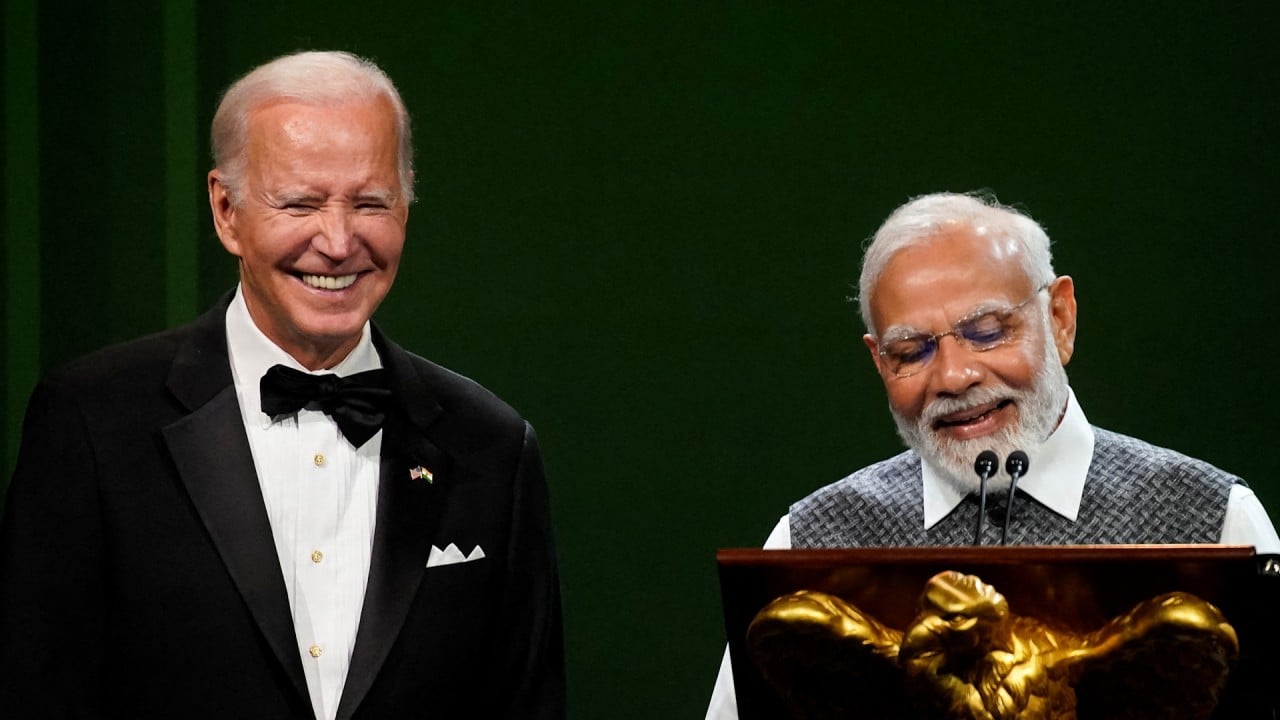Yet, as has long been evident – most starkly in the context of the war in Gaza – Biden has struggled to walk the talk, especially against illiberal allies. Instead, his rhetoric has ended up weakening democratic movements against those regimes and encouraged illiberalism.
Biden’s handling of the strategic US relationships with Israel and India – two important partners which have long been tending away from democratic values – is particularly instructive.

That effort, now unsettled by the Gaza conflict, was happening even amid disturbing authoritarian trends in Israel that predate the latest escalation.
Meanwhile, Netanyahu oversaw sharp increase in tensions with Palestinians in the West Bank, as armed Israeli settlers vandalised property and destroyed crops. Even before the deadly Hamas attack last month, 2023 was already the deadliest year in the West Bank for nearly two decades.
That warm embrace continued after the October Hamas terrorist attack. After that tragedy, Washington aligned closely with Israel’s response, even as leaders in Tel Aviv engaged in aggressive rhetoric against Palestinian civilians.
Biden’s approach to illiberal strategic allies has made the US liable to allegations of hypocrisy and weakened the moral authority he promised to strengthen. That criticism has become especially sharp in the context of Biden’s response to the two major wars in Ukraine and Gaza, where Washington has adopted starkly different approaches to civilian deaths.
But perhaps more consequentially, by validating their democratic credentials, Biden has encouraged America’s illiberal allies to double down on their illiberalism, thereby weakening democratic activism against them – both within and outside those countries.
In response to such criticism, the Biden administration has said it brings up human rights concerns with illiberal allies through private channels.
While that may make for sensible diplomacy, Washington’s warm public rhetoric has the effect of diminishing that effort. It signals to illiberal allies that America values their strategic cooperation far too much to impose any costs for flouting norms abroad or repressing dissidents at home.
The US would do better to drop its black-and-white framing of the world as a battleground between democracies and autocracies. That rhetoric has the effect of forcing Washington to validate and appraise the democratic credentials of its partners and rivals, thereby tying itself to the policies of illiberal allies and limiting its ability to act against them.
Instead, Biden should adopt a more pragmatic line, which would give it the strategic space to respond to crises of authoritarianism as they evolve. That could include communicating clear red lines to illiberal allies and deploying tools to discourage a further slide into authoritarianism.
Mohamed Zeeshan is a foreign affairs columnist and the author of Flying Blind: India’s Quest for Global Leadership





